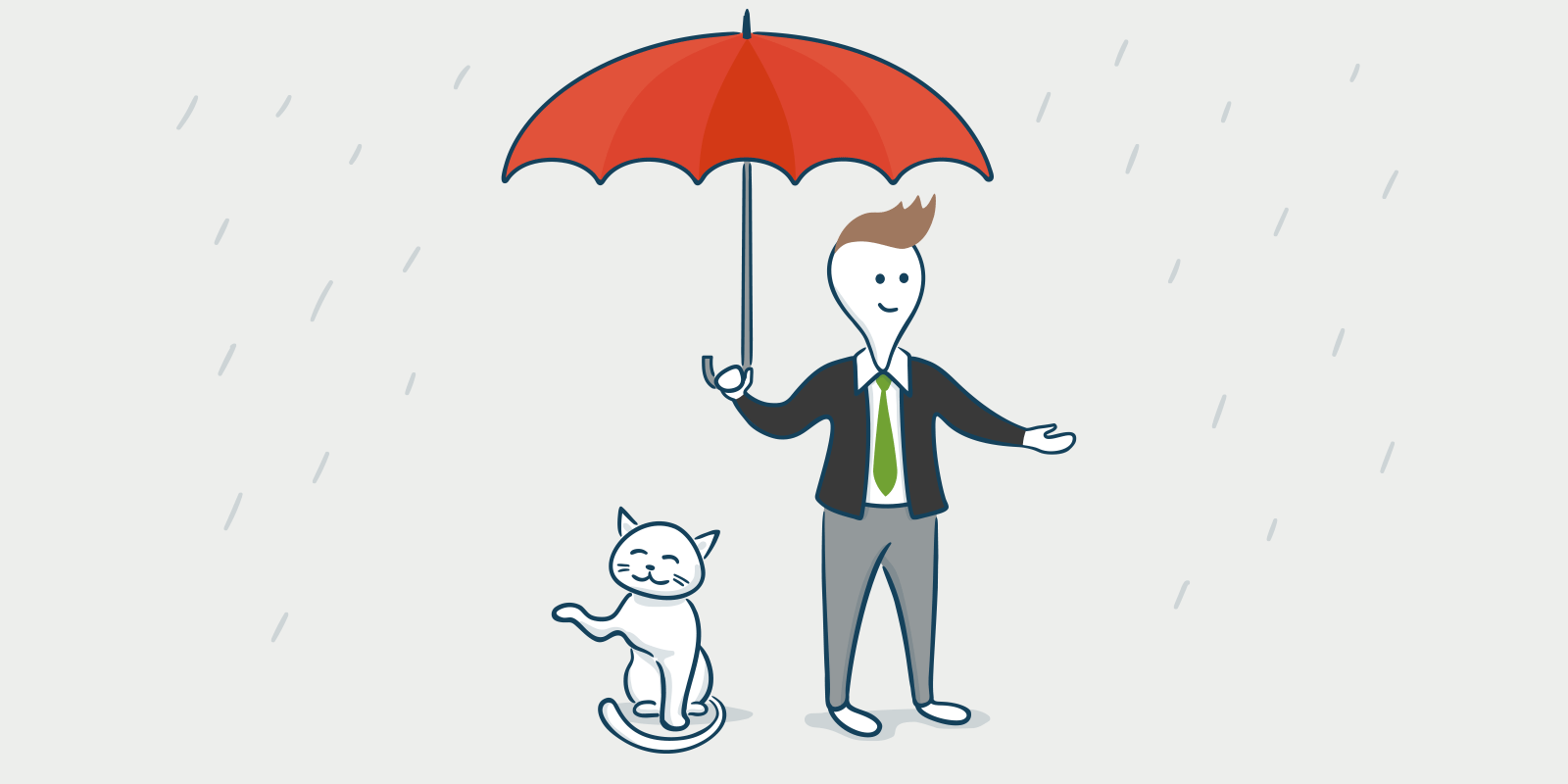
- What is landlord’s insurance?
- What does this insurance cover you for?
- Is landlord’s insurance more expensive?
- Is this insurance a legal requirement?
- Do I need this insurance if renting to family members?
- Do I need this insurance if I live in the property?
- Do I need landlord’s insurance and building’s insurance?
- Things to remember
So you’re looking to rent out a property, but you’re baffled by insurance. What is landlord’s insurance, and will a typical homeowner’s policy be adequate?
What is landlord’s insurance?
Landlord’s insurance is like homeowner’s insurance but specifically designed for rental activities. Your mortgage lender will probably require you to have landlord’s insurance if you are renting the property, as renting can be a risky business. If you move out of your mortgaged home and rent it, you must check with your mortgage provider that this is acceptable under their terms. They will typically require you to update your insurance policy to a landlord’s policy.
What does this insurance cover you for?
Landlord insurance covers you for three main types of losses:
- Property damage
Much like homeowners’ insurance, a specialist landlord policy will cover you for damage to the property. Should storms, snows, and freezing temperatures, or fire damage your home, the policy will cover this. Landlord’s insurance will also cover you for contents such as kitchens, bathrooms, furniture, and any other appliances you leave in the property for your tenant to use. It will not cover your tenant for their contents, however. For example, if there were to be a break-in, your tenant cannot claim on your insurance for their property. It’s up to to your tenant to arrange their own contents insurance for items of value such as laptops left in the property. - Liability
If your tenant were to sustain an injury while in your property, they could very well make a claim and try to sue you. In which case, you would be protected, and your policy provider would settle with your tenant. You wouldn’t have to worry about being taken to court. If your tenant’s guest, however, were to suffer an injury, there would be no use them attempting to sue you. The tenant’s renters’ insurance would manage the claim. - Loss of rental income
Finally, the landlord’s insurance can help you with lost rental income. It might be your home is damaged by storms, and you suffer a loss of income. It depends on your policy what you may be covered for. You may need to rehouse tenants in other accommodation. Maybe your tenant stops paying, and you need to pay for eviction. Once again, different policies will cover different things.
Is landlord’s insurance more expensive?
As mentioned above, this insurance covers you for more than a homeowner’s policy. Because you’ll be protected for liability and losing rental income, expect to pay more your policy. However, the additional premium will only be around 25% more than a standard homeowner’s policy.
Is landlord’s insurance a legal requirement?
No. You need not have this insurance, and it’s not a legal requirement. If you own your property outright, then no one will force you to take out a specialist policy. However, know that you could be liable for expensive claims if your tenant were to sue you for hurting themselves in your home. You also won’t be covered for loss of rental income, and your simple homeowner’s policy would be invalid if you were to put in a claim for damage caused by tenants. For the small additional premium, it’s probably worth buying this policy.
Do I need landlord’s insurance if renting to family members?
It’s a common mistake to think since you trust family members not to sue, you don’t need it. Mortgage lenders don’t see things that way and will still require you to have landlord’s insurance. You’ll still need a tenancy agreement in place, along with your mortgage lender’s approval.
That being said, you may choose to buy a cheaper policy that just covers buildings and contents, and property owners liability cover. You may skip additional protection, such as policies that cover you for tenants not paying and help with eviction costs.
Good to know
You can find out more about tenancy agreements in our 5-minute guide.
Do I need this type of insurance if I live in the property?
Regardless of whether you are renting out a whole property or just renting a room to a lodger, if your home is mortgaged, it’s likely they will require you to take out landlord’s insurance. It’s also important to contact your mortgage provider to see if they will allow you to have a lodger.
Most home insurance policies only allow for the homeowner and immediate family. While you may update the policy to reflect a lodger, you will likely need to buy a specialist policy.
Do I need landlord’s insurance and building’s insurance?
No. Landlord’s insurance is a type of insurance that will cover you for structural damage to your home. Similarly, it also covers contents, so you will only need one policy. Insuring your property twice is a waste of money since you can only claim on one policy. To make a dual claim would be illegal.
Landlord’s Insurance: Important things to remember
If you mortgage your property, you must comply with your lender’s terms and buy landlord’s insurance.
Even if you invite a lodger to stay, you must check with your lender if they allow this and buy landlord’s insurance.
You don’t need multiple policies for buildings and contents and landlord’s insurance. This is a policy that will cover you for everything.
Landlord’s insurance can cover you for costs, including moving your tenants out if your property is damaged, unpaid rent, and eviction costs. It will also cover you for any claims your tenant may make against you if they are injured in your property.



 Protect the environment. Reduce paper consumption and help save the trees as well as save money at the same time.
Protect the environment. Reduce paper consumption and help save the trees as well as save money at the same time. 
